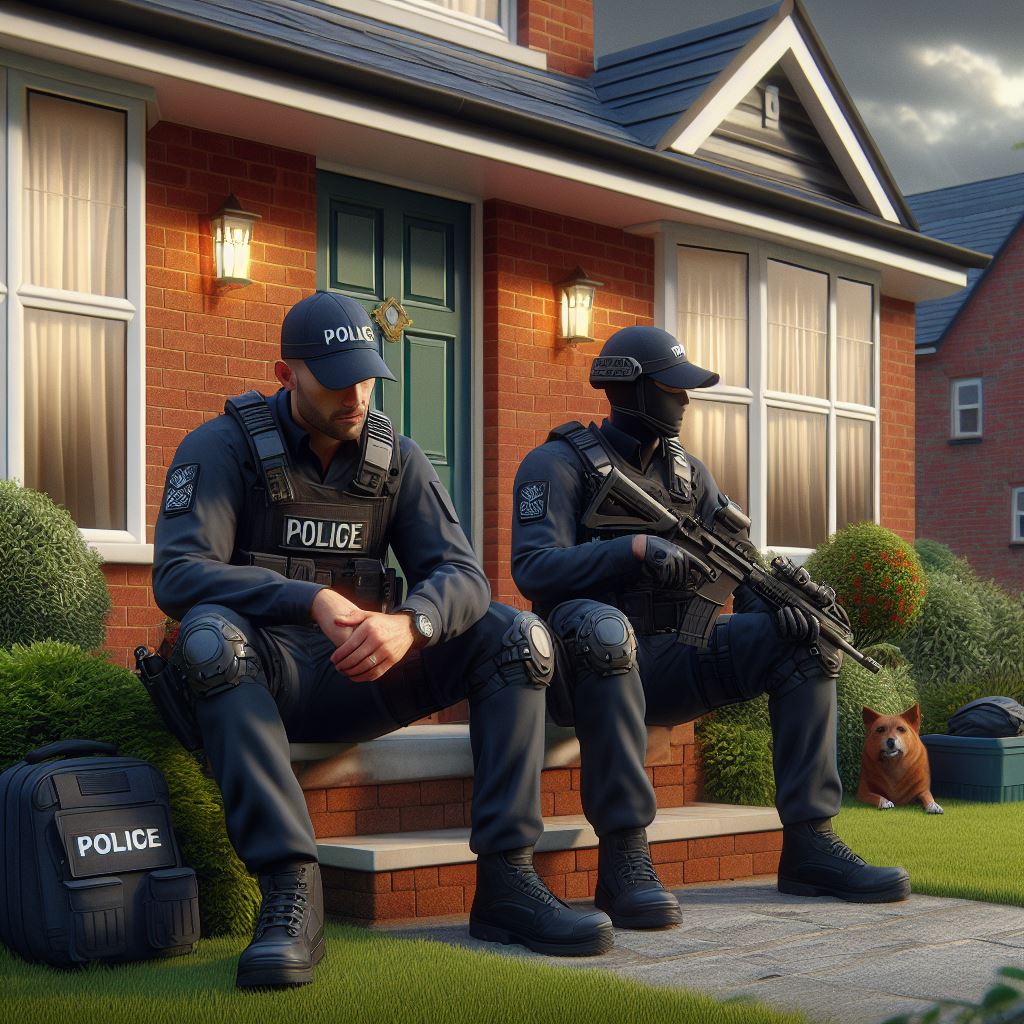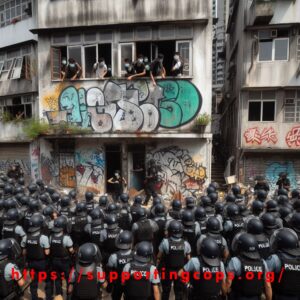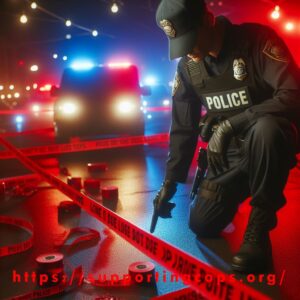Why Do Police Sit Outside Houses?
It’s not uncommon to see police vehicles parked outside of homes, especially in residential areas. For some people, seeing a police car outside their house can be unsettling and cause concern, leaving them wondering “why do police sit outside houses?”. However, there are several reasons why police officers might sit outside houses, and it’s not always a sign of trouble.
Surveillance
Monitoring Suspicious Individuals
One of the most common reasons why police officers sit outside houses is to conduct surveillance. Law enforcement agencies use surveillance to monitor the activities of individuals who are suspected of criminal activity.
Gathering Evidence
By observing and gathering evidence, police officers can build a case against individuals who are involved in illegal activities.
Building a Case
Through surveillance, officers can compile the necessary evidence to eventually make arrests and build solid court cases.
Investigation
Gathering Information
Police officers might sit outside a house if they are investigating a crime that occurred in the area.
Waiting for Arrivals/Departures
They might be waiting for someone to arrive or depart from the house to gather information or evidence related to the investigation.
Evidence Collection
Staking out a location allows investigators to potentially collect physical evidence or witness testimony to assist with solving cases.
Traffic Enforcement
Speed Monitoring
Police officers may also park outside houses to monitor traffic violations. They may be looking for speeders,
Red Light Violators
individuals who run red lights, or other traffic offenses.
School Zones
This type of enforcement is often done in areas with a high volume of traffic, near schools or residential areas where children play.
Welfare Checks
Wellness Concerns
Police officers might park outside houses to conduct welfare checks on individuals who live there.
Safety Assessments
This might occur if a neighbor or family member expresses concern about the well-being of someone in the home.
Preventing Abuse/Neglect
Officers might sit outside the house to observe the comings and goings of individuals and ensure their safety from potential neglect or abuse.
Police Presence
Deterrence
In some cases, police officers may sit outside houses simply to maintain a presence in the community.
Community Reassurance
This can help deter crime and increase public safety by letting potential criminals know that law enforcement is present and active in the area.
Crime Prevention
The visibility of police vehicles reminds criminals that illegal activities are being watched and less likely to be committed.
Benefits
Deter Criminal Activity
Presence as Deterrent
The presence of police officers outside a house can help deter criminal activity.
Reduced Crime Rates
If potential criminals see that law enforcement is present and active in the area, they may be less likely to commit crimes in the area.
Community Safety
Public Reassurance
The presence of police officers outside houses can increase the sense of security and safety in the community.
Lower Fear of Crime
When residents see that law enforcement is actively patrolling the area, they may feel more secure and less fearful of crime.
Gather Evidence
Surveillance Observation
When police officers sit outside houses, they may be able to gather evidence related to ongoing investigations or surveillance activities.
Case Building
This evidence can be used to build a case against individuals who are involved in illegal activities.
Traffic Enforcement
Increased Road Safety
Police officers who monitor traffic violations can help increase safety on the roads.
Reduced Accidents/Injuries
By enforcing traffic laws, they can reduce the number of accidents and injuries that occur on the roads.
Welfare Assessments
Prevent Abuse/Neglect
Police officers who sit outside houses to conduct welfare checks can ensure the safety of individuals who live in the home.
Ensure Proper Care
This can help prevent abuse or neglect and ensure that individuals receive the care and attention they need.
Conclusion
Purpose Varies
Police officers sit outside houses for various reasons, including surveillance, investigation, traffic enforcement, welfare checks, and maintaining a presence in the community.
Serve and Protect
While the sight of a police vehicle outside a house may cause concern, it’s essential to remember that law enforcement officers are there to protect and serve the community.
Working with Police
It’s important to work with law enforcement to ensure the safety of the community, and if you have any concerns, it’s best to reach out to your local police department.
FAQs
Is it legal for police to sit outside my house?
Yes, generally it is legal as long as they are parked on public property. Police do not need a warrant to conduct surveillance from a public vantage point.
Can a police officer park in my driveway?
No, a police officer cannot park in a private driveway without the owner’s permission, as that is considered trespassing. They may park along the street or road outside your home.
Why do cops sit with their lights on?
Police often keep their emergency lights on while parked as an added safety precaution to alert passing motorists to their presence and location. This helps prevent accidental collisions.
What laws allow police surveillance?
Police ability to conduct surveillance is protected under the First, Fourth, and Fourteenth Amendments. These uphold their rights to monitor public spaces where no reasonable expectation of privacy exists.
Do I have to let police inside my home?
No, you do not have to allow police entry without a signed search warrant unless there are exigent circumstances like hot pursuit of a fleeing suspect or responding to emergency calls.






